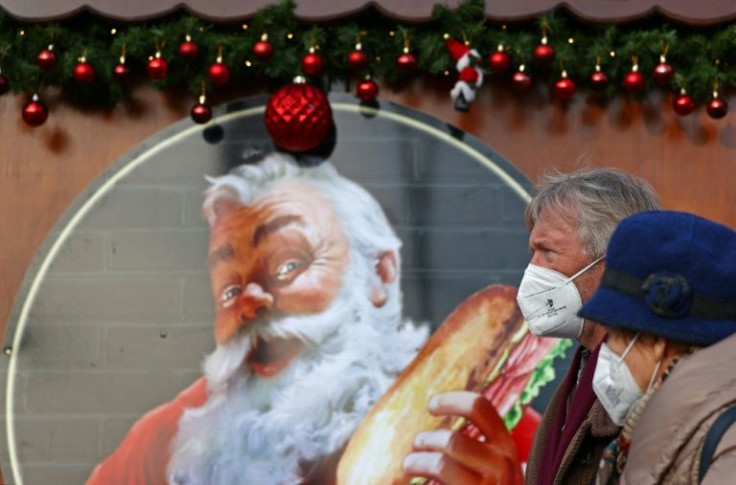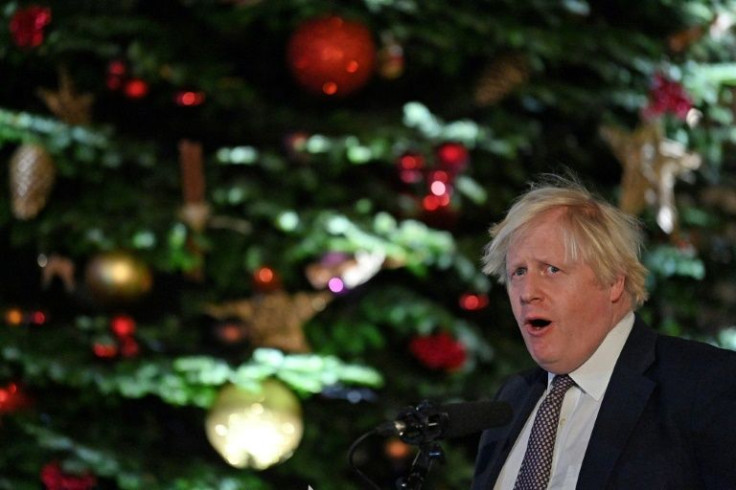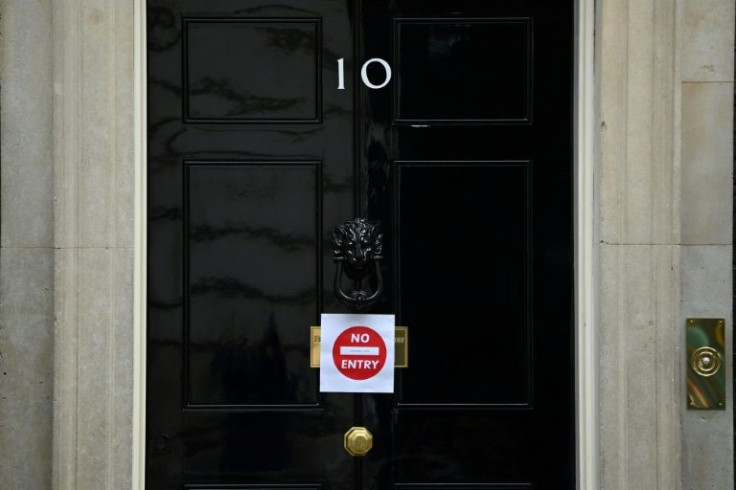'Snog Who You Wish': UK Cabinet Split On Xmas Parties
As the Christmas party season gets underway in Britain, Boris Johnson's government is struggling with mixed messages on Covid-19 while denying reports it broke rules on staff bashes last year.
In response to the new Omicron variant, the UK has banned flights from South Africa and other regional countries, reintroduced compulsory mask-wearing in some settings and ramped up its booster rollout.
However, despite scientists who advise the government on virus curbs suggesting people consider changing some of their festive social plans, ministers appear split on the issue.
Johnson has insisted events including traditional office parties can go ahead, saying Thursday the government did not want "to make people feel that they need to start cancelling things".
Moments after receiving his booster jab, he vowed a "balanced and proportionate" approach, promising: "Christmas this year will be considerably better than Christmas last year."

Last December, Johnson announced in a last-minute U-turn a "stay at home" order for London and southeast England, forcing millions to cancel Christmas plans.
This year, there will be no limits on guest numbers and "nothing in the rules to prevent anyone from having Christmas parties or gathering in any way," his spokesman has said.
But other ministers have struggled to stick to the party line.

Business minister George Freeman told Times Radio that his department "won't be having a big Christmas party this year. Nobody would expect us to".
He also told the BBC that companies that usually hold large parties may question this year: "Is that sensible, given the pandemic and given where we are?"
The risks presented by such parties were seen in Norway last week, when one resulted in 60 people catching Covid-19, despite all being fully vaccinated.
The Times reported that both the education and business ministries had decided not to hold Christmas parties. Hospitality bosses said they also had seen bookings scaled back.
Another cabinet member even strayed into the potentially perilous terrain of whether it is safe to kiss -- or "snog" -- under the mistletoe, a Christmas party tradition for some.
Work and Pensions Secretary Therese Coffey told ITV on Wednesday: "For what it's worth, I don't think there should be much snogging under the mistletoe".

She added that this should be avoided with "people you don't already know".
Her message was promptly contradicted by Health Secretary Sajid Javid, who said "people can snog who they wish" while urging them to "just be cautious and enjoy yourselves".
This led to jokes on social media about how to follow the government advice on "cautious snogging".
Some referred to Tory health minister Matt Hancock, who resigned in June after admitting breaking his own social distancing rules by kissing his aide during a national lockdown.
The Sun published a security camera image of their brief encounter in his office. Hancock later announced he was leaving his wife.
The mockery comes as the government is also battling embarrassing allegations that Downing Street staff held illicit parties with around 50 people present last year, at a time when the public was not allowed to celebrate.
The Daily Mirror reported that the prime minister gave a speech at a packed leaving party for a senior aide in November -- after a national lockdown came into force.
Then his team members -- without Johnson present -- held an unofficial festive party days before Christmas, after indoor mixing was banned in London, the newspaper reported.
The matter -- likened to a furore over Johnson's former top adviser Dominic Cummings who drove across the country while suffering from Covid -- has even taken up parliamentary time.
Johnson insisted to MPs this week that "all guidance was followed completely", while giving no details.
Public health experts appear less divided than the cabinet on this year, after 42 Omicron cases have so far been confirmed in England and Scotland, and another in Wales.
"Personally I wouldn't feel safe going to a party at the moment," Professor Peter Openshaw, a member of a government scientific advisory group, told the BBC.
Penelope Toff, chair of a British Medical Association health committee, said people should be encouraged to "avoid large groups" and wear facemasks in public spaces indoors except when sitting down to eat and drink.
© Copyright AFP 2024. All rights reserved.





















